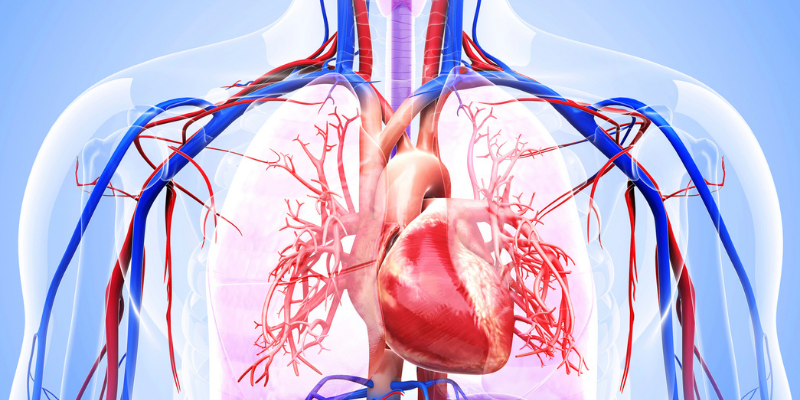Taking on Heart Disease: Improving Health Outcomes Through Research, Education, and Community Outreach
March 31, 2021 Posted by AHW Endowment

To learn more about this funded project, click here.
As the COVID-19 pandemic began to spread through the country last year, data quickly emerged that certain illnesses increased the risk of serious complications and death. Chief among those was heart disease and the large group of conditions that affect the heart and cardiovascular system. Estimates indicate that while 1% of healthy individuals die from COVID-19, that number jumps to 10% for those with cardiovascular disease, and even as high as 52% for those with heart failure.
These numbers were a cause for alarm among local health professionals, who recognized how prevalent cardiovascular disease is not only nationally, but also in Wisconsin. Across the state, heart disease continues to be the leading cause of death.
“Cardiovascular disease is the number one disease that affects Wisconsinites,” said Ivor Benjamin, MD, director of the Cardiovascular Center at the Medical College of Wisconsin. “It doesn’t matter if you live in the urban or rural communities.”
Dr. Benjamin has been on a mission to turn these numbers around. While the pandemic has underscored the importance of good heart health, Dr. Benjamin recognized the need for significant efforts years ago. Through a $4 million, seven-year AHW investment that began in 2014, Dr. Benjamin and his team in the Medical College of Wisconsin’s Cardiovascular Center (CVC) are taking on the long-term challenge of improving cardiovascular health.
The project has focused on spurring innovative research, expanding education, and supporting community engagement with the ultimate goal of improving patient care and the public’s health. Today, the impact of this work is pushing us closer to achieving better heart health.
A large portion of the project has been helping early-stage research projects get off the ground – launching “pilot” awards aimed at giving research teams the opportunity to gather initial data and test a hypothesis.
“[These] are extremely important,” said Dr. Benjamin, noting that in order to compete for larger grants from funders like the National Institutes for Health, researchers need to show initial data that supports their research concept. These larger grants make it possible to turn research ideas into action that will one day impact patients and communities.
With the AHW-funding, the CVC has launched 11 pilot studies focused on a wide range of issues, from understanding pediatric heart function to cell regeneration after a heart attack. These MCW-led research teams have identified early data and novel ideas that are spurring further investigation, earning more than $20 million so far in additional external grant funding that would not otherwise have been possible without the early-stage investment. The pilot studies have also enabled 35 research collaborations and resulted in 16 peer-reviewed publications and 25 local, national, and international presentations.
The team has also focused in on translational research — which brings together laboratory and clinical researchers, incorporates feedback from communities, and aims to have a direct impact on health – to launch new collaborative investigations.
“We need to be outwardly facing and meet people where they are, especially communities that are disproportionately impacted by a variety of issues, including cardiovascular disease.” – Ivor Benjamin, MD
In one pilot study, MCW researchers have partnered with a community organization to test physical activity interventions at a vacant lot-turned-neighborhood park in Milwaukee’s Harambee neighborhood. The result has been positive, providing structured physical activities and support to community residents while helping researchers understand how to best serve this community – and similar urban communities.
Another research team is studying cardiomyopathy, the disease of the heart muscle that can lead to heart failure, using new technology that enables researchers to take a patient’s own cells and reprogram them to behave like a stem cell—opening up the door for a wide range of research and personalized medicine that does not require a stem cell from an embryo.
Called Induced Pluripotent Stem Cells (iPS), this technology utilizes blood, urine, or skin samples from adults and has been applied elsewhere to treat diabetes, cancer, and neurological disorders. They can also help researchers study untreatable conditions to better understand why they happen and how to prevent them. Today, the CVC is making this technology more widely available, piloting a program that makes these cells, and the technology to create them, available to all MCW researchers.
Alongside deep investment into research advancements, the project has launched opportunities to shape the training of the next generation of cardiovascular scientists. Through focused “affinity groups” and “signature programs,” Dr. Benjamin and his team have organized participating researchers from a variety of departments into groups who have formed team-based research programs collaborating around critical health issues that include high blood pressure, diseases of the arteries or blood vessels, cardiac biology and heart failure, and precision medicine.
“Our center is so unique because we can bring together multiple departments and groups to enable interactions that would not otherwise be happening,” said Allison DeVan, PhD, scientific administrator for the Cardiovascular Center who helps lead the project.
The project funding has also enabled a variety of community outreach initiatives targeted in southeastern Wisconsin to improve cardiovascular health.
“We need to be outwardly facing and meet people where they are, especially communities that are disproportionately impacted by a variety of issues, including cardiovascular disease,” said Dr. Benjamin.
That meant hiring a community engagement specialist to coordinate health screenings and community education events such as free cardiovascular wellness events held at Calvary Baptist Church, Oneida Tribal Services, and Journey House in Milwaukee while also joining the Girl Scouts in sharing heart-healthy tips with Milwaukee-area children.
While the AHW-funded project work will end in December 2021, the Cardiovascular Center plans to continue to build off of the advances made over the last seven years.
“What keeps me up at night is that we are involved in a fight to eliminate cardiovascular disease so everyone in our community can at least have the opportunity of having health equity,” said Dr. Benjamin. “Our work today has made great progress, but it is very clear this fight is not over—we have a lot more work to do.”




